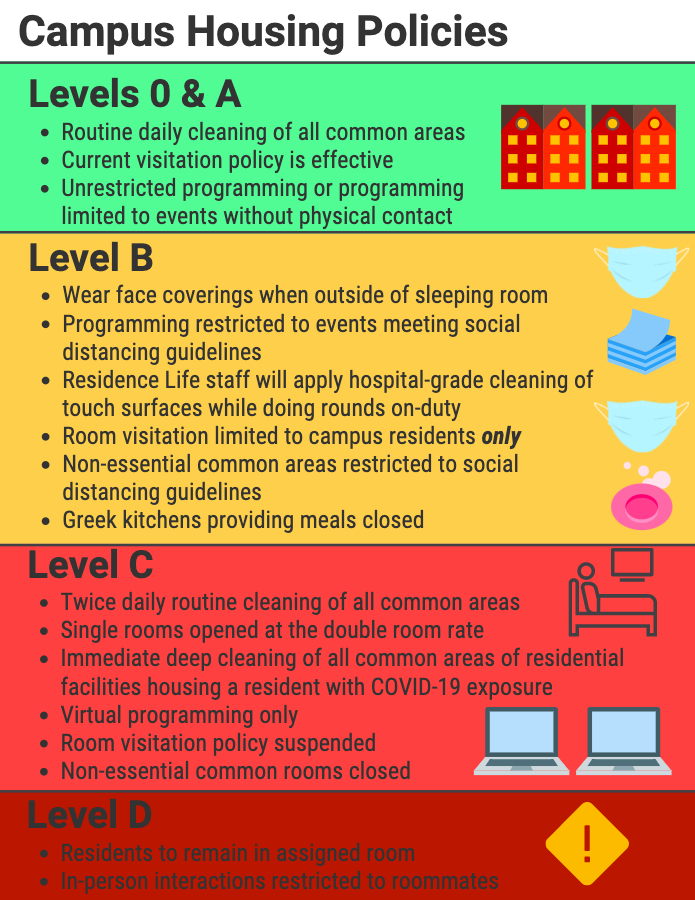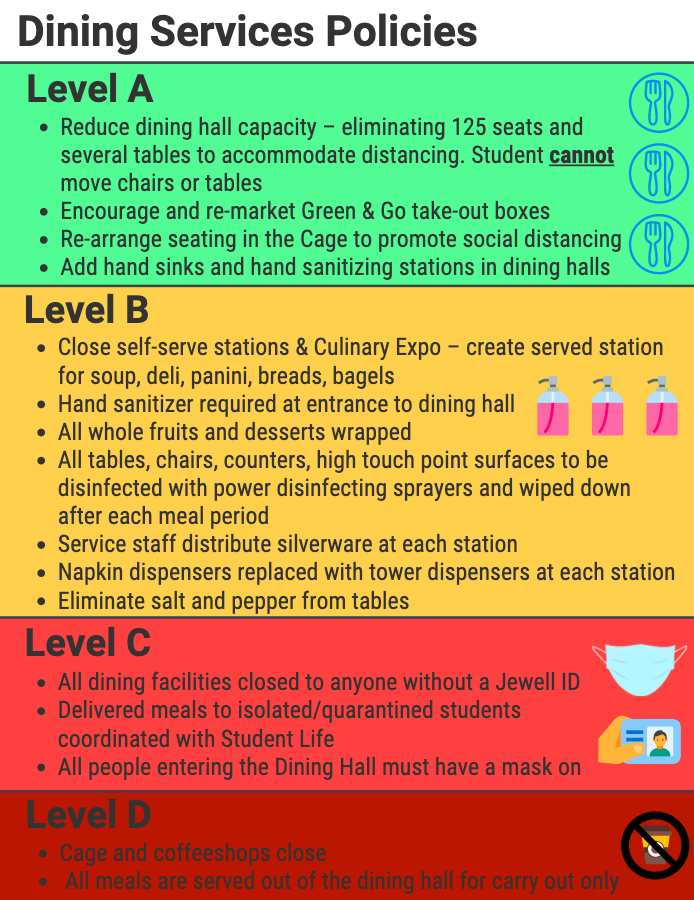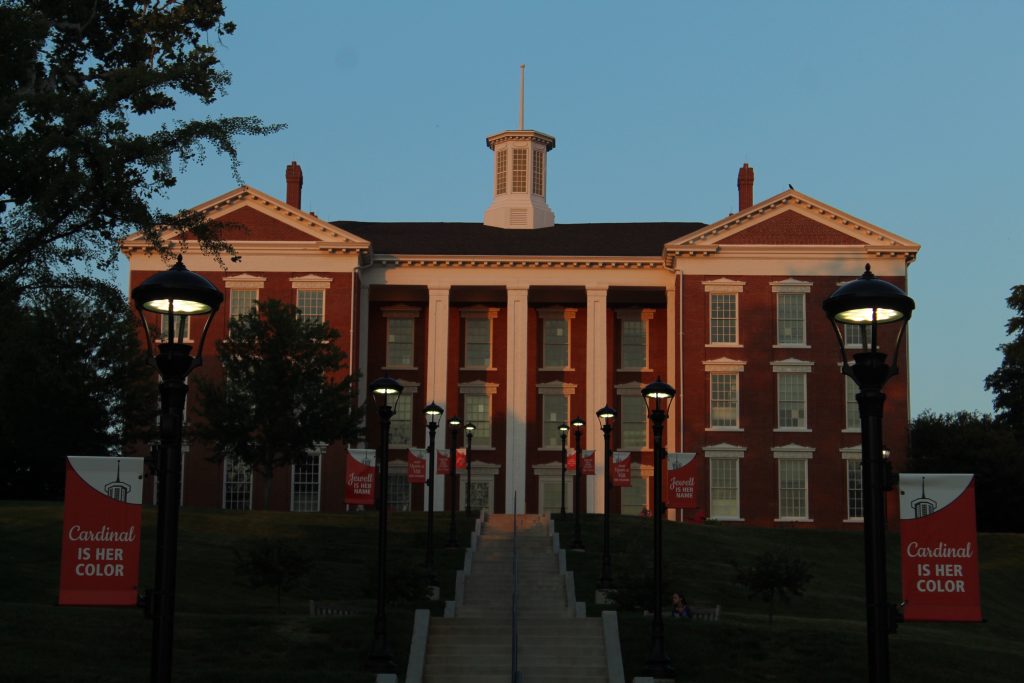
William Jewell College will reopen for in-person classes Aug. 26. As the College opens, it will be instituting many changes to life, academics and work on campus to keep the community safe and healthy. Primary changes include modes of delivery for courses, a facial covering policy, mandated social distancing, daily health screening and changes to the academic schedule.
Dr. Anne Dema, provost of the College, described the decision making process for the various changes. Most decisions were made by committees or with input from collaborative teams to provide several perspectives. Faculty have been involved in conversations, including in determining modes of delivery and identifying potential outdoor spaces for class.
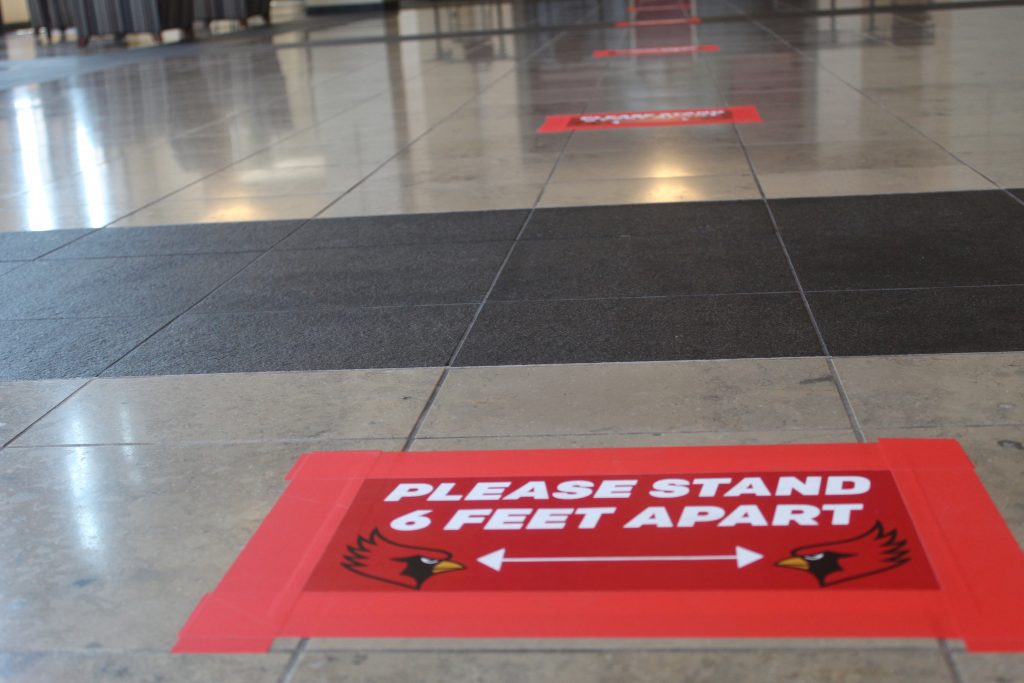
Social distancing signs in the Union 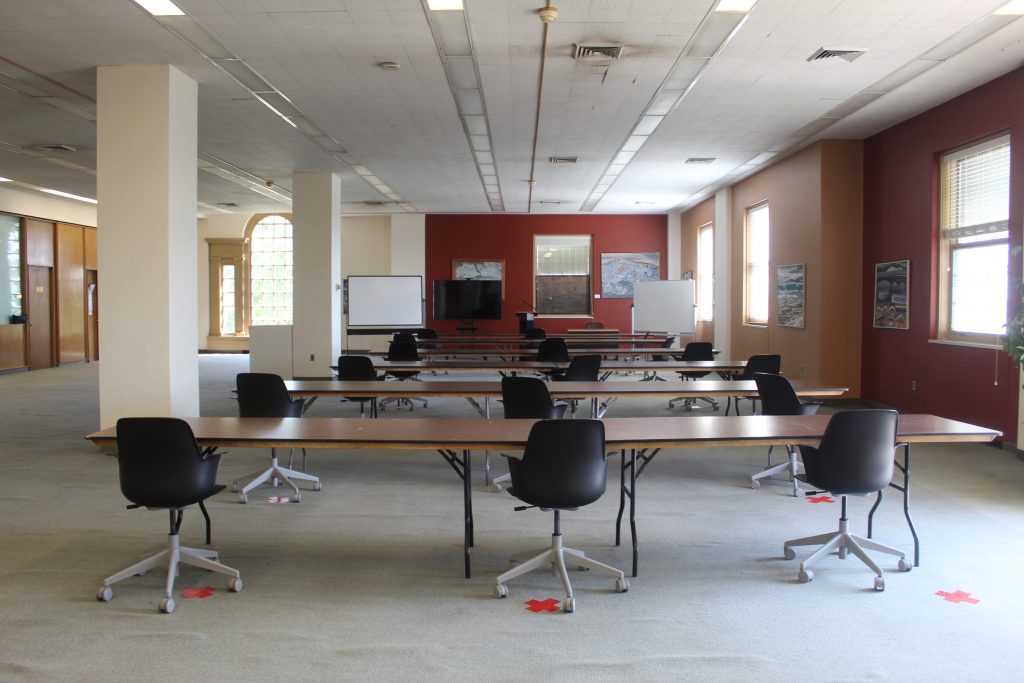
New classroom on the main floor of Curry Hall 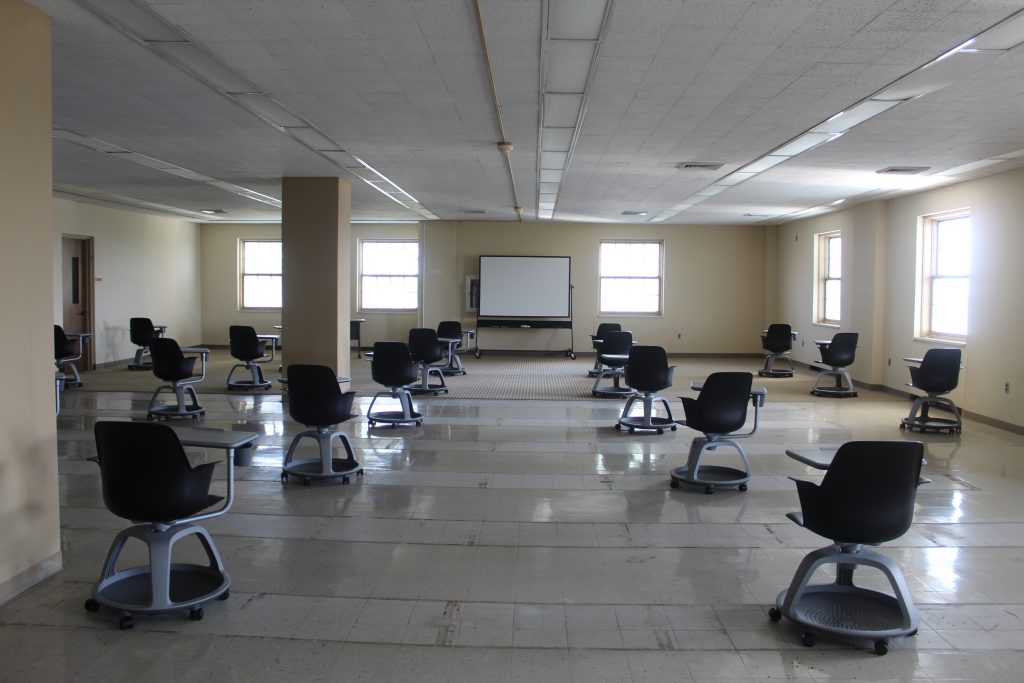
New classroom on the second floor of Curry Hall 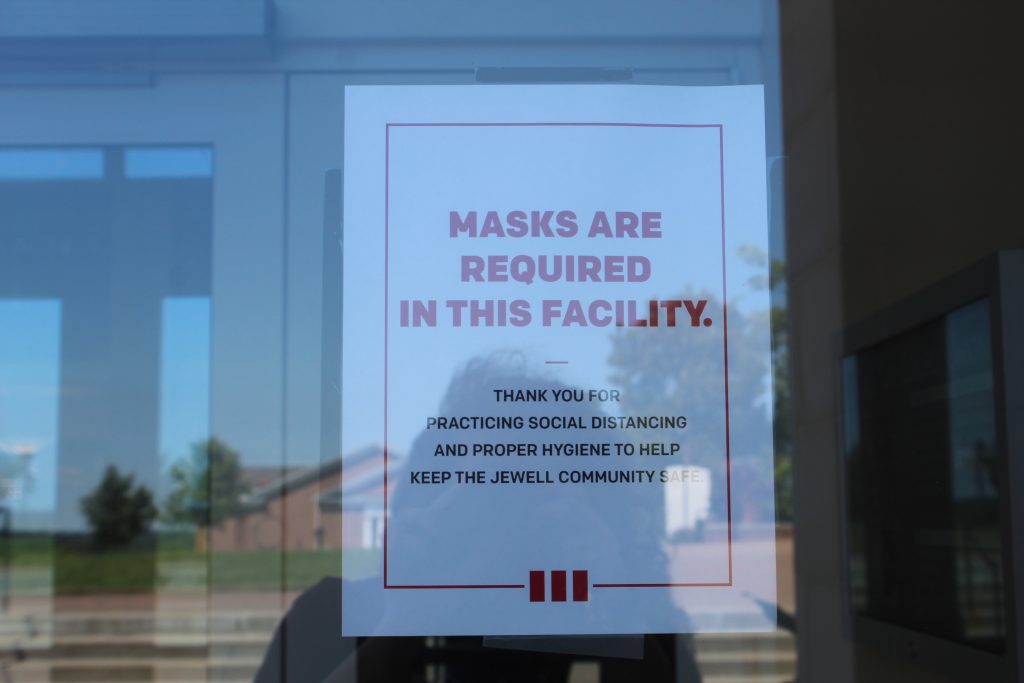
Facial covering sign outside the Union 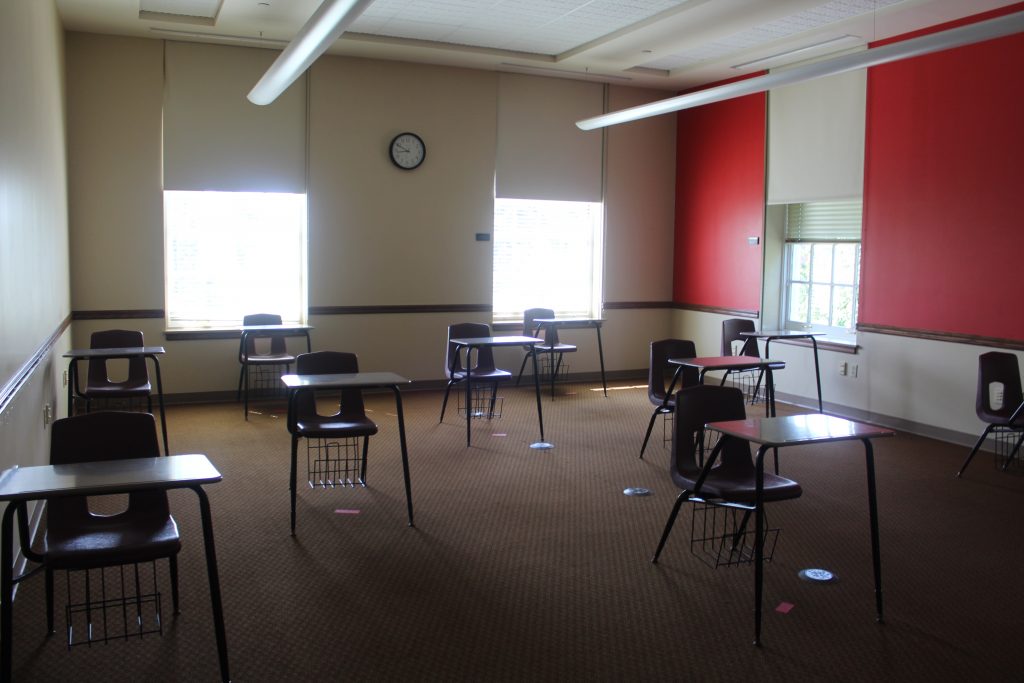
Socially distanced classroom in Jewell Hall 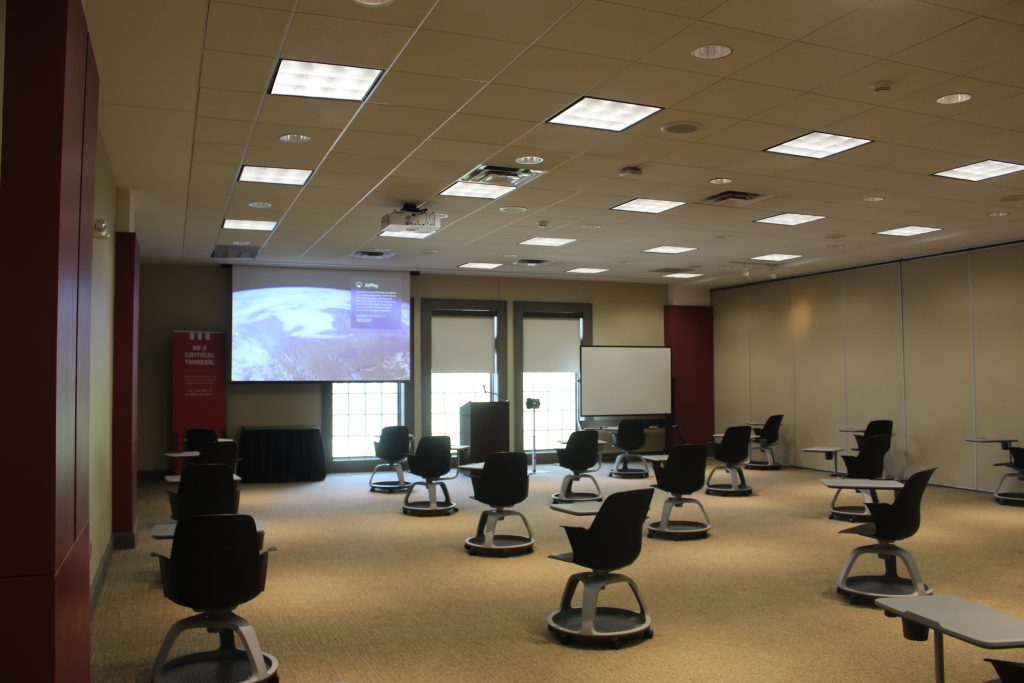
New classroom in Yates-Gill 221 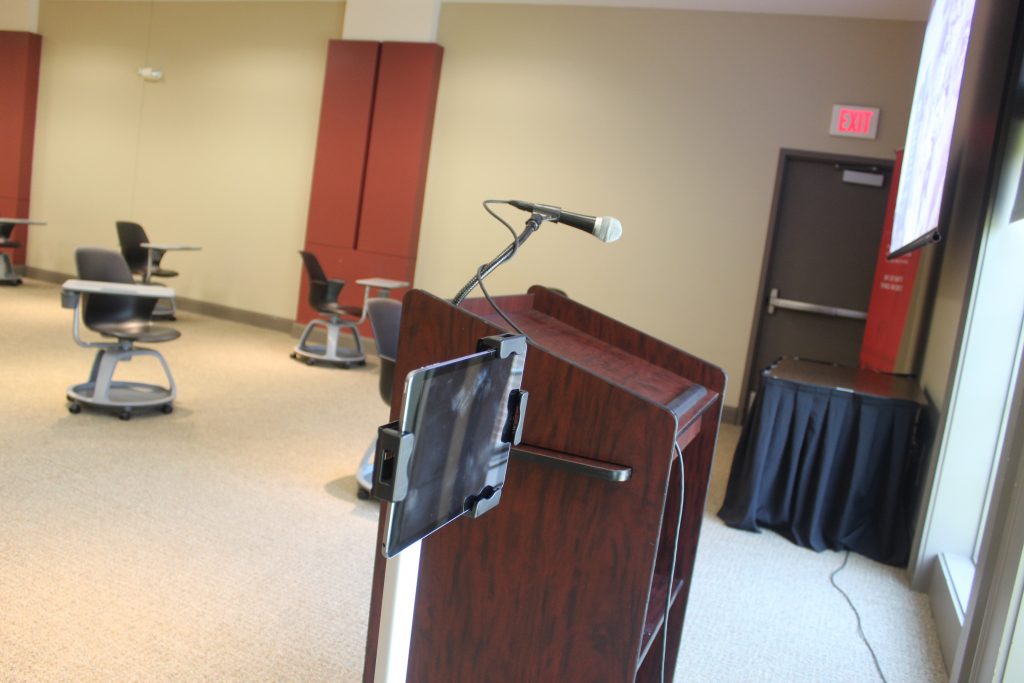
iPad stand and microphone in Yates-Gill 221 classroom 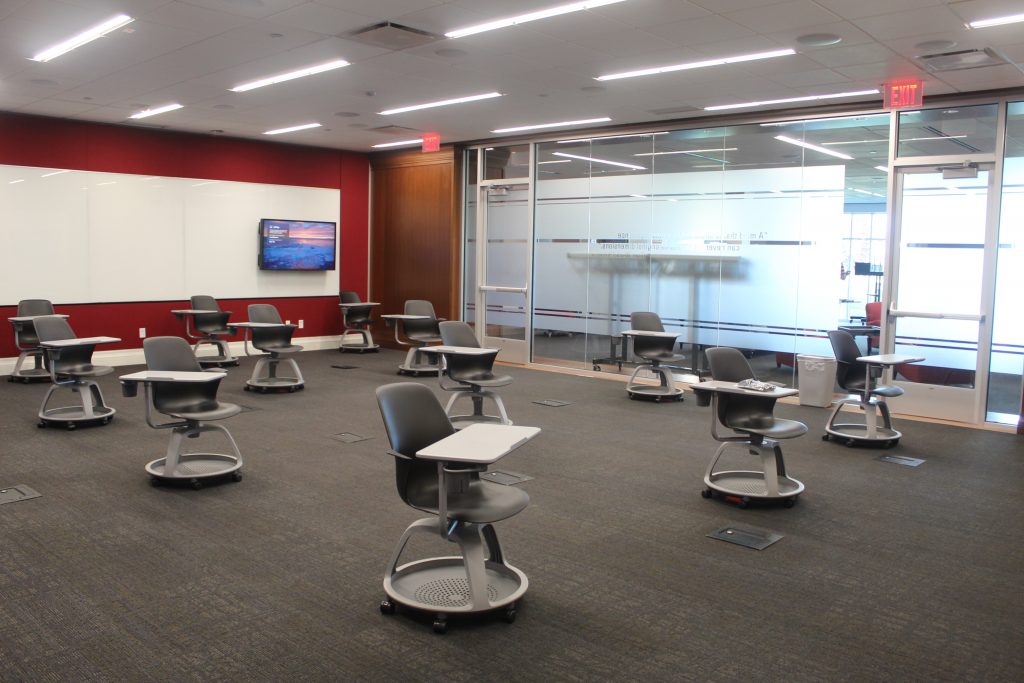
Socially distanced classroom in PLC 110
Dema emphasized the iterative process necessary to react to the evolving situation. As the College learns from the initial return to campus, further modifications will likely be made. Dema reiterated that this process is reflective of science and the ever-developing situation.
“Being ready to start is one thing, but we have to be ready to continue to adapt,” Dema said.
In addition to the primary changes highlighted below, Dema described that more activities will take place outside, including efforts for student engagement – like meetings, events, clubs and organizations, and classes – depending on professorial decisions and weather. Access to cleaning supplies, including wipes and masks, will be greatly increased, as well as an overall change to the way the school cleans. Several departments, like the business office, are also working to make it easier for students to schedule virtual appointments.
New Policies
Jewell has instituted a facial covering policy requiring facial coverings to be worn at all times while indoors. Exceptions to the policy include when one is alone in a personal office, in the dorm where one sleeps, while eating or drinking and when one is outdoors and social distancing is possible. Students participating in athletics, music or performances have exceptions to the facial covering policy. The exceptions include “team physical exercise, athletic practices and weight training, and athletic performances in which distancing is difficult and facial coverings are not advised,” as well as those in “ensembles, rehearsals, and vocal or theatrical productions (performers only).”
Social distancing of six feet will be required between people at all times.
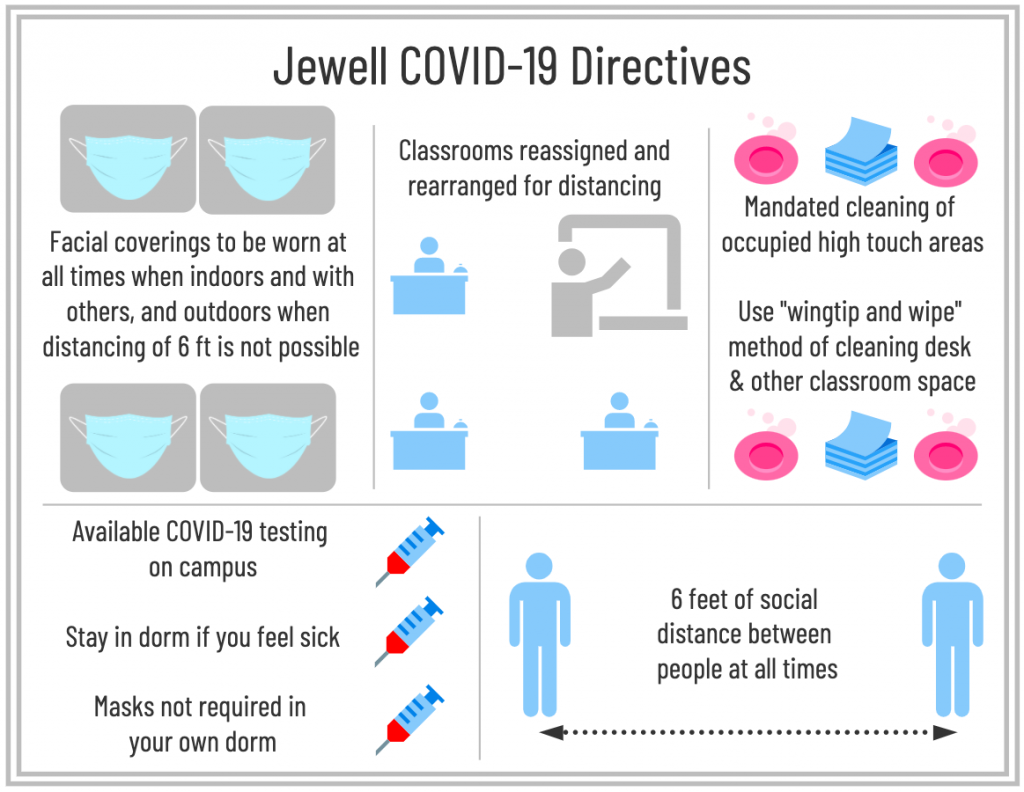
Students and faculty will also be required to submit a daily health screening form via a web app to monitor potential symptoms of COVID-19. Members of the community should monitor symptoms every day and begin quarantining if they begin experiencing symptoms.
If students begin showing COVID-19 symptoms, they should contact the Student Health Center – now located in Browning Hall – to determine if a COVID-19 test is necessary. Testing of symptomatic individuals will occur on campus or at Liberty Hospital – depending on severity. Those who have been exposed to COVID-19 on or off campus will also be able to get tested at the Student Health Center or Liberty Hospital.
Academic Changes
The College has altered the academic schedule for this semester. Fall Break will be moved to Nov. 23-24 – giving an entire week of break for Thanksgiving. Advising days have been moved from Tuesday, Oct. 27 and Wednesday, Nov. 4 to Thursday, Oct. 29 and Wednesday, Nov. 4.
After Thanksgiving break, all classes will be virtual, but the campus and residence halls will remain open. This will allow students and faculty to return home for the holiday without interruption due to quarantine upon return.
Classes are being offered with one of five new modes of delivery: face to face, hybrid asynchronous, hybrid synchronous, online asynchronous and online synchronous. Face to face courses will have all class meetings in person – as long as it is safe to do so. Hybrid courses will have some in-person classes each week and some virtual classes. Online classes consist of virtual classes only. Synchronous courses will have virtual classes occurring live during the pre-assigned class period. Asynchronous courses will have virtual classes take place with pre-recorded material that can be completed at various times.
Classrooms have been reassigned and re-spaced to account for social distancing restrictions. Desks will be placed at least six feet apart, and each desk will be placed over a red “X” to mark its intended location. Students are not allowed to move desks or chairs in classrooms.
New classroom spaces include Yates-Gill 221-222 and both the main and second floors of Curry Hall. These classrooms will be able to accommodate larger classes, and professors will have microphones to use to ensure students can hear in the larger spaces.
Classrooms will be equipped with an iPad to allow students who are unable to attend class in-person to stream or Zoom in to the class. Students and faculty will need to use the “wingtip and wipe” method of disinfecting both before and after classes. This entails one wiping down every area within reach of one’s open arms.
Campus Changes
Visitors and guests will be restricted during the 2020-21 school year. Visitors will not be permitted in the residence halls, and all visitors will need to be approved by the College. Departments must submit a request for visitors to the Screening Committee 14 days before the intended visit. Visitors must submit a health screening form 24 hours prior to arrival on campus and will not be allowed on campus if they display COVID-19 symptoms. Contact information of visitors must be submitted to the Screening Committee, and visitors will be expected to abide by social distancing guidelines.
Dining services will adapt to new guidelines depending on the campus threat level. Capacity in the dining hall will be reduced to accommodate social distancing. Once the dining hall has reached maximum capacity, those in line to enter will be required to wait until there is more room. Students will also be encouraged to use the Green & Go takeout boxes. Self-serve stations will be removed and replaced with staff-served stations. Coffee shops and the Cage will remain open as long as the campus is above level D.
Residence Life has instituted Quarantine & Isolation policies for students, faculty and staff. Student housing will also be required to operate differently under different Operation Safe Campus threat levels.

